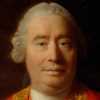Section 6

More Reflections On Justice And Injustice
by David Hume
5 min read
911 words
Table of Contents
Arguments To Prove That Justice Is Artificial
The 3 fundamental laws of nature are:
- The stability of possession
- Its transference by consent
- The performance of promises.
The peace and security of human society entirely depend the strict observance of those three laws. It is impossible to establish a good correspondence among men if these are neglected.
Society is absolutely necessary for people's well-being.
Their well-being is as necessary to support the society.
These laws are:
- the real offspring of men’s passions, and
- are only a more artful and refined way of satisfying them.
Our passions are most vigilant and inventive. The convention for the observance of these rules is most obvious. Therefore, Nature has trusted this affair entirely to men’s conduct. It has not placed any original principles in the mind to determine a set of actions for us, which the other principles of our frame and constitution would lead us into. We may draw some new arguments to prove: that those laws are entirely artificial, and that justice is an artificial, and not a natural virtue.
Argument 1: Property Is Not A Natural Principle
The first argument I use is derived from the vulgar definition of justice.
Justice is commonly defined to be a constant and perpetual will of giving every one his due.
It supposes:
that there are such things as right and property, independent of justice, and antecedent to it, and
that right and property would have existed even if people had never dreamt of practising justice.
I have already observed the fallacy of this opinion.
This quality called 'property' is like many of the imaginary qualities of Aristotle's philosophy.
It vanishes on a more accurate inspection, when considered apart from our moral sentiments.
Property does not consist in any of the object's sensible qualities.
Because these qualities may stay the same while the property changes.
Therefore, property must consist in some relation of the object.
But it is not in its relation with regard to other external and inanimate objects.
Because these relations may also stay the same while the property changes.
Therefore, this quality consists in the relations of objects to intelligent and rational beings.
But it is not the external and corporeal relation, which forms the essence of property.
Because that relation may be the same between inanimate objects or animals.
Though in those cases, it forms no property.
Therefore, property consists in some internal relation.
It is in some influence which the external relations of the object have on the mind and actions.
Thus, the external relation which we call occupation or first possession is not of itself imagined to be the property of the object, but only to cause its property.
This external relation causes nothing in external objects.
It only has an influence on the mind by:
giving us a sense of duty in abstaining from that object, and
restoring that object to the first possessor.
We call these actions as 'justice'.
Consequently, the nature of property depends on justice.
Justice does not depend on the property.
If anyone asserts that justice is a natural virtue and injustice a natural vice, he must assert that certain actions in external relations of objects, with regard to property, right, and obligation, naturally has:
a moral beauty or deformity, and
causes an original pleasure or uneasiness.
Thus, restoring a man's goods is considered virtuous, not because nature has annexed a pleasure to the restoration with regard to the property of others.
It is because she has annexed pleasure to the restoration with regard to the external objects which others had possessed.
If nature did not give us such sentiment, then there would be no such thing as property, naturally nor antecedent to human conventions.
Nature has annexed no pleasure to such a conduct.
If nature had given us this kind of pleasure, it would have been obvious and discernible everytime.
We would easily see that the consideration of such actions gives a sentiment of approbation.
We would not have been obliged to:
use the notions of property in the definition of justice, and
use the notions of justice in the definition of property.
This deceitful method of reasoning is a proof that there are some obscurities which we:
are not able to surmount, and
desire to evade.
Those rules which determine properties, rights, and obligations have no marks of a natural origin in them, but many marks of artifice.
They:
are too many to have proceeded from nature, and
are changeable by human laws.
All of them have a direct tendency to:
public good, and
the support of civil society.
The support of civil society is remarkable on two accounts:
Because the establishment of these laws would still have been artificial, even if their cause had been a regard for the public good.
Since they were purposely contrived and directed to a certain end.
Because if men had been endowed with such a strong regard for public good, they would never have restrained themselves by these rules.
In that case, the laws of justice from natural principles would arise in a more oblique and artificial way.
Self-love is their real origin.
A person's self-love is naturally contrary to another person's self love.
These several interested passions are obliged to adjust themselves to concur in some system of conduct.
Therefore, this system comprehends the interest of each individual and is advantageous to the public, even if it is not intended for that purpose by its inventors.